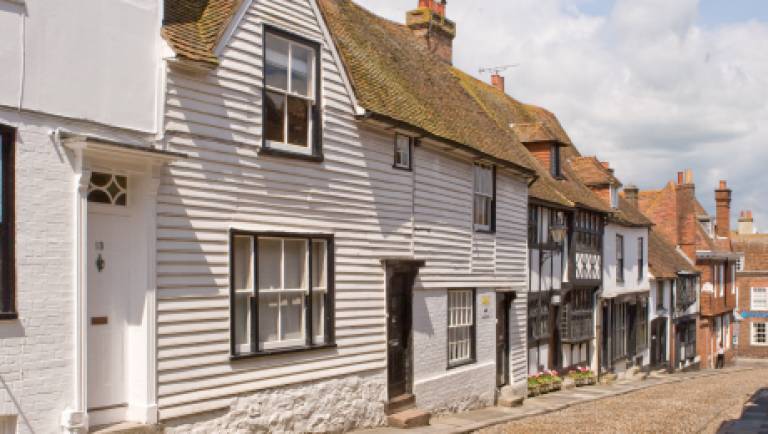UCL IEDE wins Indoor and Built Environment’s Best Paper Award 2014
16 April 2015

Indoor and Built Environment, the Journal of the International Society of the Built Environment has recognised as outstanding, a paper written by members of the Housing Energy and Wellbeing (HEW) and awarded it ‘Best paper 2014’.
The paper was written by Clive Shrubsole, Alexandra Macmillan, Mike Davies and UCL-Energy's Neil May. Clive Shrubsole, the lead author, initially found out by accident when he was searching the web site after a colleague had informed him that the link to the research wasn't working. Clive feels it is a “real justification for all the hard work by co-authors and other members of the team who have developed the project from scratch”.
The paper, 100 unintended consequences of policies to improve the energy efficiency of the UK housing stock, considers the range and domains of impacts of current energy efficiency policy on the UK housing stock. It emphasises the complex and dynamic relationship formed by many of these impacts and calls for government and society to reconsider its approach.
It proposes integrative methods to capture this complexity and support a dynamic understanding of the effects of policies over time, bringing together different kinds of knowledge in an improved decision-making process. It suggests that participatory systems dynamics with multi-/inter-disciplinary stakeholders is likely to offer a useful route forward, supporting cross-sectoral policy optimisation that places reducing housing GHG emissions alongside other housing policy goals.
The HEW Project investigates integrated decision making about housing, energy and well-being, and supports policy making about housing. This research is part of a five year EPSRC platform grant that considers the unintended consequences of decarbonising the built environment.
The paper was awarded Best Paper 2014 based on the following criteria:
. The potential future applicability of the research
paper for building design, building management,
urban planning, government regulations, standards
and guidelines
. The potential impact of the paper on academic
learning
. Relevance of the paper to the current global interest
and development, e.g. sustainable development and
environmental quality issues
. Quality, originality and scientific merit.
 Close
Close

